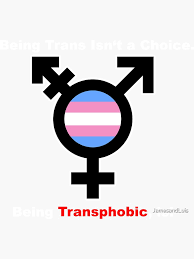In recent years, the conversation around gender identity has evolved significantly, and with it, a greater understanding of what it means to be a trans male. This identity encompasses a diverse range of experiences and journeys as individuals navigate their gender identity and expression. In this article, we’ll explore the various facets of being a trans male, from the transition process to the importance of mental health support, as well as community building and representation in media.
Understanding the Trans Male Identity: What It Means
The term "trans male" refers to individuals who were assigned female at birth but identify and live as male. This identity can be a complex interplay of gender identity, societal expectations, and personal experiences. It’s essential to understand that being a trans male is not a monolithic experience; each person’s journey is unique and may involve a variety of personal, social, and cultural factors.Gender Affirming Surgery
For many, the realization of being a trans male can be a profound moment of self-discovery. It often involves a deep understanding of oneself and a desire to live authentically. Acceptance of this identity is not always straightforward, and societal pressures can make it difficult for trans males to feel comfortable expressing their true selves.
The Journey: Transitioning as a Trans Male Explained
Transitioning as a trans male can involve multiple dimensions, including social, medical, and legal aspects. Social transition may involve changing one’s name, pronouns, and presentation to align more closely with one’s gender identity. This step is often vital for helping individuals feel more comfortable and authentic in their day-to-day lives.
Medical transition varies widely among trans males. For some, this may include hormone therapy, which introduces testosterone into the body, leading to physical changes such as a deeper voice and increased body hair. Others may choose to undergo surgeries, like chest masculinization or gender-affirming surgeries. Importantly, transitioning is a personal choice, and each individual must navigate their path in a way that feels right for them.
Common Misconceptions About Trans Males Debunked
Despite growing awareness, many misconceptions about trans males persist. One common myth is that all trans males desire surgery or hormone therapy, which is far from true. Each person’s transition is deeply personal, and not everyone will pursue medical interventions. It is vital to respect each individual’s choices and understand that transitioning can take many forms.
Another misconception is that trans males are just "tomboys" or women trying to adopt masculine traits. Gender identity is distinct from gender expression; being a trans male is about one’s internal sense of self, not merely a set of behaviors or preferences. Educating ourselves and others on these nuances can foster a more inclusive understanding of the trans male identity.
Navigating Hormone Therapy: Tips for Trans Males
For many trans males, hormone therapy is a significant part of their transition journey. It’s essential to approach this process with realistic expectations and thorough research. Consulting with a knowledgeable healthcare provider who specializes in transgender health is crucial for ensuring safe and effective treatment. They can guide individuals in understanding the potential effects, timeline, and any necessary monitoring during therapy.
In addition to seeking professional guidance, connecting with others who are undergoing or have undergone hormone therapy can provide valuable insights and support. Online forums, local support groups, and social media platforms can serve as excellent resources for sharing experiences and tips. Remember, everyone’s body responds differently to hormones, so patience and self-compassion are essential during this time.
Mental Health Matters: Support for Trans Males
Mental health is a critical aspect of the trans male experience, as many face unique challenges related to gender dysphoria, societal acceptance, and personal relationships. Seeking mental health support from professionals who understand the complexities of gender identity can be incredibly beneficial. Therapists with experience in working with trans individuals can provide valuable coping strategies and a safe space to discuss feelings and experiences.
It’s also important to create a strong support system of friends, family, and community members who affirm one’s identity. Engaging in open conversations about mental health can help de-stigmatize the issues trans males face and encourage others to seek help when needed. Remember, prioritizing mental health is a vital part of living authentically.
Building Community: Finding Your Tribe as a Trans Male
Finding a supportive community can make a world of difference for trans males navigating their journeys. Whether through online platforms, local LGBTQ+ organizations, or social media groups, connecting with others who share similar experiences can foster a sense of belonging. These communities often provide a space to share stories, resources, and advice, creating an uplifting atmosphere for growth and acceptance.
Moreover, participating in local events, workshops, or support groups can be a powerful way to build connections and foster friendships. These interactions can provide not only companionship but also valuable insights into the challenges and triumphs faced by trans males. Remember, you’re not alone on this journey; there are many people out there who understand and want to support you.
Celebrating Visibility: Trans Male Representation in Media
Visibility matters, and representation of trans males in media has been steadily improving. From films and television shows to books and social media influencers, seeing trans males portrayed authentically can be empowering for individuals exploring their identities. Positive representation helps challenge stereotypes and fosters understanding in a wider audience, paving the way for acceptance and inclusivity.
However, it’s essential to recognize the difference between token representation and authentic storytelling. Supporting projects that prioritize the voices of trans individuals can help ensure that narratives are genuine and enriching. Engaging with trans male creators and advocating for diverse representations can contribute to a more inclusive media landscape.
Resources for Trans Males: Where to Find Support and Care
For trans males seeking support, there are numerous resources available. Organizations like the Human Rights Campaign, the Trevor Project, and local LGBTQ+ centers offer a wealth of information, support groups, and healthcare referrals. Many of these organizations also provide online resources, making it easier to find help without the pressures of in-person contact.
Additionally, online communities can be valuable for trans males seeking advice or connection. Websites and forums dedicated to transgender issues often contain helpful resources, personal stories, and tips for navigating the journey. Whether you’re looking for medical information, emotional support, or just a friendly chat, there are many avenues to explore.
Being a trans male is a multifaceted experience that encompasses a wide range of identities, journeys, and challenges. By understanding the complexities of this identity, debunking misconceptions, and fostering community, we can create a more inclusive and supportive environment for trans males everywhere. Remember, whether you’re at the beginning of your journey or well on your way, there are resources and people ready to support you. Celebrate your identity, connect with your community, and never hesitate to seek the help you deserve!


